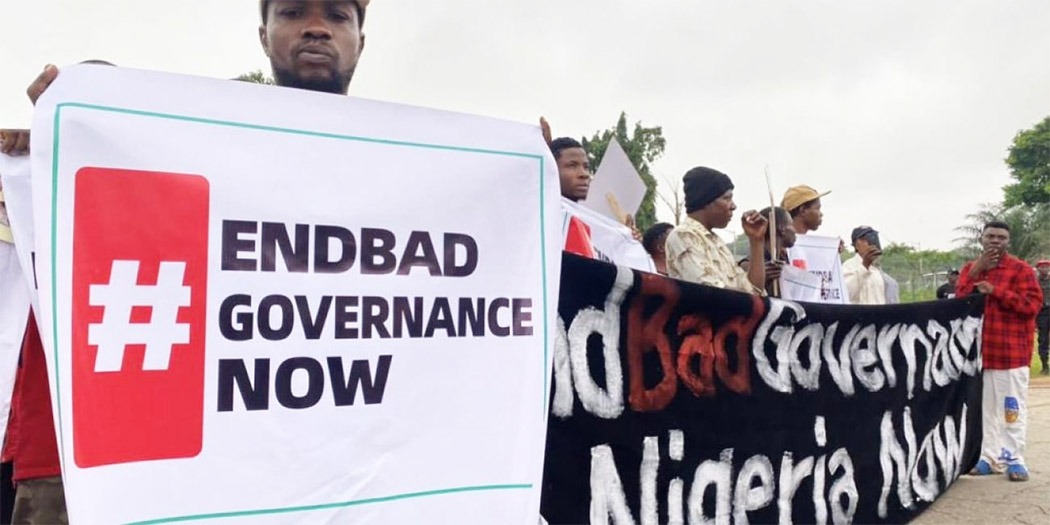As concerned Nigerians, we collectively feel a deep sense of despair, not just in our leaders, but in ourselves as a people. We all hoped for the change that President Bola Tinubu promised, despite the controversial management of the elections by INEC, we took it in our stride, considering the apparent institutional weaknesses.
After years of suffering under bad governance, we were desperate for a leader who could steer us in a new direction. Yet, it seems that rather than the promised hope, his regime has only further fueled our despair.
To be clear: Bad governance didn’t start with the current federal regime; the problem has plagued us for decades, rooted in the dark days of military rule, and prior to that, the days of identity politics pre-dating the first republic, and culminated in coups and a civil war that had an estimated 3million persons exterminated on avoidable disagreements.
Tinubu’s rise to power, however controversial or debated, came with expectations of hope. The opposition rationalized that at least, the gentleman ought to come with some capacity as espoused by his handlers and the Lagos media axis. People assumed, perhaps naively, that his leadership would usher in some measure of sanity despite the fact that his antecedents gave reasons for concern.
On August 1, Nigerians took to the streets. We gathered from every corner of the country to protest, demanding change, demanding equity & justice. After ten days of protests, did anything really change?
The president eventually, albeit reluctantly, addressed the country. It was most underwhelming!
There was this deep sense of disappointment by the citizens; as almost nothing regarding the protests was addressed, and we came away with the feeling of de’javu; reminiscent with the addresses of the military rulers of yesteryears…addressing the citizens while saying exactly nothing!
Nigrians have been expecting the current regime to usher in reforms that would improve the economy, reduce unemployement, encourage manufacturing and exporting, strengthen the Naira and increase national productivity and the Nigerian business environment. What we rather got was the removal of subsidies, devaluation of the Naira, galloping inflation and higher taxes. The economy simply went belly-up!
Did the protests ease the pain of our daily lives? Did they lead to any real discussions about the cost of food, about the worsening economy, or about the suffering that so many endure every day?
Instead, it feels as though we’ve moved from zero to nothing. Our protests, which started with such energy, are now fading into silence. The issue is no longer in the headlines, no longer in our daily conversations. We spoke up, but were we truly heard?
What hurts the most is the loss of innocent lives during those protests. For what? Did we achieve the change we so desperately sought? It’s a painful question to ask, but it’s one we must confront. Bad governance didn’t start today—it has been with us since the first military coup. So why didn’t we fight it from the beginning?
And now, do we honestly believe that one protest could suddenly end decades of corruption?
It’s time to acknowledge that we need new strategies to address these challenges. Protests alone will not suffice. We must look to strengthening the civil society, to educate and mobilize politically. We must leverage on technology to promote transparency, using digital currency and blockchain to prevent the manipulation of elections, budgets, and resources.
The solution isn’t in one man or one protest; it’s in our collective action, our shared resolve. We must come together—united in our purpose—to build a better Nigeria. This is our moment. If we don’t seize it, the silence we hear now will only deepen, and our country will be the one that suffers.
We are all in agreement that the current governmental structure in Nigeria has failed so spectacularly; his structure was wrought out of a constitution prepared by military hardliners with criminal; intents. The 1999 constitution is a dictatorship document that has no bearing in a democratic setting. All we have been doing since 1999 has been trying to make sense of a nefarious constitution, and we have failed to accept the fact that the very constitution is impacting so negatively on Nigeria. For Nigeria to get out of the morass, that constitution must be set aside, and a negotiated constitution of the constituent nations of Nigeria ushered in. For Nigeria to move forward, there must be the collective will to re-evaluate the polity, agree on a workable system, jettison the current structure that has held us down, and bring about a governmental system that works for the benefit of all stakeholders.
READ ALSO: #EndBadGovernance Protest: Delta recorded least violence during protests, says Report



